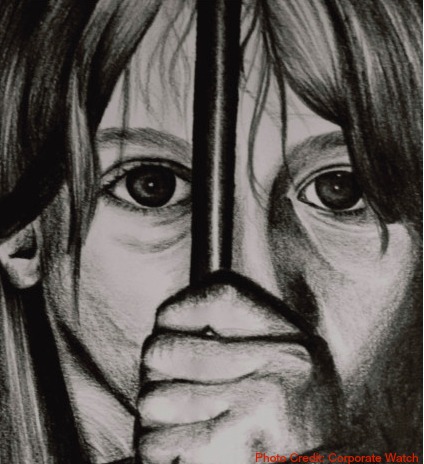Sharing my daughter’s experience as a student with incarcerated parents and the wrap around services provided at her school, led me to search for programs supportive of students like her. We know that traumatic experiences such as those my daughter has experienced have effects on a student’s learning experiences and their emotional well being in the classroom. This population becomes at risk for complex trauma, depression, social isolation and increased poverty. Family members of the incarcerated are the silent victims of our criminal justice system.
How many students are out there like Celeste, my daughter? Are our school districts aware of this population? Do schools even know? In our current school district, LAUSD, are they aware? If so, what support systems and resources are out there for students like Celeste?
The Center for American Progress released data showing that nearly half of all U.S. children have a parent with a criminal record, an estimated 33 to 36.5 million children in the United States alone. This released data is only specific to parents of the children. The data collection does not go on to include siblings, tías, tíos, ninas, ninos, primos and the rest of the familia.
After a basic search of support programs that would address my daughter’s needs, I came across Project Avary. According to its website, “Project Avary Is A Year-Round Program, which is tailored to meet the unique emotional needs of children of inmates. We intervene early in the lives of children at the ages of 8 to 11, and we make a long-term 10-year commitment to each child and family.” Yes, reader, you read correctly, TEN YEAR COMMITMENT to each family. The scope of these services goes on to include a residential summer camp, teen mentoring program and a family unity program.
The Project Avary summer camp includes activities like swimming, hiking, music, arts & crafts, etc. along with therapeutic campfire discussion circles and expressive art activities about the shame, stigma, and grief of having a parent in prison. All youth receive training in stress reduction, anger management and conflict resolution through yoga, meditation, and non-violent communication.
Did I mention that the Project Avery Program is free? “This is perfect,” I thought. Until I scrolled down and saw that they were located in San Rafael. Pues que pinche great.
As for programs in LAUSD schools, I came across one, POPS (Pain of the Prison System) whose mission is to enhance the lives of those students who have been impacted by the pain of the prison system—those with incarcerated loved ones and those who have been incarcerated themselves. POPS establishes and sustains high-school clubs that offer students community and emotional support as well as opportunities to publish the writings and artwork they create through the club.
POPS got its start at Venice High School in 2013 and is the first LAUSD high school club that focuses on the needs of students that are affected by our mass incarceration crisis. They are determined to transform fear into truth. The club is starting to expand to public schools across the state and nation. Currently, the club operates in seven schools in California, with one more launching this fall.
Since LAUSD is the 2nd largest school district in the nation with a student body of over 640,000 and Los Angeles being home to the biggest and most troubled jail systems in the U.S., with an average daily population nearing 22,000. It is obvious to see that our students are impacted by the effects of mass incarceration. Based on the numbers from The Center for American Progress, it could be estimated that 320,000 LAUSD students have a parent who is or has been incarcerated. Staggering numbers. And while POPS has expanded to create clubs at Los Angeles High School of the Arts (LAHSA), Lawndale High School, LA High in Los Angeles County, it is simply not enough.
Resources for students like Celeste are minimal, almost non-existent. Schools can and should take a more active role in helping students by forming clubs and programs that address the stigma of having an incarcerated parent head-on. Schools need to provide a safe and welcoming space where students who struggle, feel comfortable sharing and discussing their experiences. I would love to see more programs like POPS created and expanded to begin to meet the needs of LAUSD’s student population who have been affected by having a parent in prison or trying to re-enter society after serving time.
Lily Gonzalez
She is a recent cancer survivor and through some years of adversity has risen above all her recent challenges. Lily is a Homeboy Industries graduate and full-time student at California State University, Northridge. She has continued to live her life in South Los Angeles with her two children. She works to show her children that anything can be done with hard work, determination and perseverance even in the face of unimaginable challenges. Her daughter is in a Charter School and she is working to find the right Preschool program for her youngest child.

